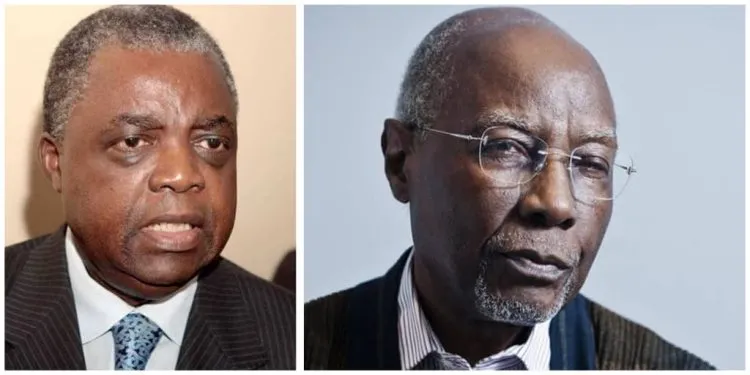Cameroon’s Minister of Communication and government spokesperson, René Emmanuel Sadi, has downplayed calls for a political transition, asserting that President Paul Biya’s leadership remains stable and effective.
This statement comes amidst speculation regarding Biya’s potential candidature in the 2025 presidential elections.
In an interview with Radio France International (RFI), Minister Sadi emphasized President Biya’s achievements and ongoing projects, attributing them to his four-decade leadership.
Biya, who is 91 years old, has served as the President of Cameroon since 1982, making him one of the longest-serving leaders in Africa.
Sadi’s remarks were prompted by claims from former Secretary General at the Unity Palace, Titus Edzoa, who alleged that individuals within the government had approached him to discuss proposals for Biya’s transition from power.
However, Sadi expressed skepticism regarding Edzoa’s statements, asserting that any changes in leadership would be determined by the Cameroonian population through democratic elections.
Addressing Biya’s potential candidacy, Sadi stated that the president traditionally announces his candidacy at the end of his mandate, with consideration given to the views of his party, the Cameroon People’s Democratic Movement (CPDM).
Members of the CPDM across the nation want President Biya to stand for the 2025 elections. The president has always said his lengthy stay in power has been backed by Cameroonians, who, he said, continue to vote him into power.
Titus Edzoa had claimed that someone from the government had reached him to make proposals on what Biya’s transition from power would be.
However, Rene Sadi said the transition is unnecessary because the president is fully exercising his functions.
“Personally, I doubt Mr. Edzoa’s statement about those whom he said have contacted him. He is not the only Cameroonian political actor to ask for a change at the helm of the state. It is the Cameroonian population that decides, and the elections are planned for 2025. We will see if the Cameroonians want to change in one direction or another,” René Emmanuel Sadi said.
Outlining what Biya will use to cajole voters to give him another mandate, he said in 2019, President Paul convened the Major National Dialogue to x-ray and diagnose the socio-political unrest in the two Anglophone Regions.
He also mentioned the building of sporting infrastructure in the country that hosted AFCON 2022, and roads, among others.
“Pretending that nothing has been done since 2018, according to Professor Edzoa, seems inappropriate,” he said.
QUESTION OF FRANCK BIYA
Rene Sadi also addressed speculation surrounding Biya’s son, Franck Biya, indicating that his eligibility and decision to contest would be made responsibly.
“He has always said that at the end of his mandate, Cameroonians and the international community will be informed of the decision he will take. That of representing himself or that of withdrawing. The president of the republic will determine, in agreement with the activists of his party, the democratic reform of the Cameroonian people, the CPDM. As for his son, Frank Biya, if he meets the conditions of his eligibility, he will make his decisions with full responsibility,” he added.
Regarding concerns about Biya’s age, Sadi highlighted the president’s wealth of experience in leadership as a compelling reason for continued support.
However, questions have arisen regarding the treatment of former government officials who have left Biya’s administration, many of whom have faced legal challenges.
Several prominent figures, including former Secretaries General of the Presidency and journalists, have either been jailed or exiled under Biya’s rule.
Among them include Marafat Hamidou Yaya, Jean Marie Atangana, Gilles Roger Belinga, and journalist Amadou Vamoulké.
Sadi maintained that these individuals were transparently judged for common offenses, rather than politically motivated crimes.
“They were judged transparently in a framework accessible to the public for the acts that we know are common. And not political delusions. There are no political prisoners in Cameroon, and it is therefore justice that will decide whether to release them or continue to keep them in prison. If ever an action is to be considered or desired, it will be a possible presidential pardon,” he said.
Sadi’s comments underscore the political dynamics in Cameroon as the nation prepares for the 2025 presidential elections.
Amidst speculation and calls for change, the government remains firm in its support for President Biya’s leadership.



